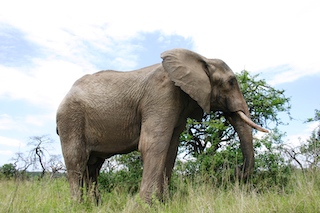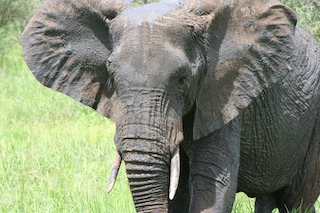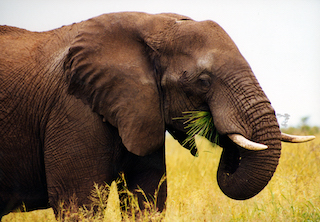Elephant Totem Pole Of Indigenous People
When it comes to spiritual symbols and totems, the elephant holds a profound and unique place. You can find it in the mythology and beliefs of many cultures around the world. However, in North American Indigenous traditions, the elephant is not commonly represented. At least not as other animals such as the wolf, eagle, or bear. Despite this, we can see the influence of the elephant as a totemic symbol through their universal traits. It embodies strength, wisdom, protection, and the deep connections to nature and community. Understanding the significance of elephant in this context involves examining its symbolism in broader spiritual traditions. These attributes resonate with the values of Indigenous peoples across North America.
Totem and why animals are important
In Indigenous cultures, a totem is a spiritual symbol or a sacred emblem. It has deep roots to an animal, plant, or natural element. It holds deep significance for a particular tribe or individual. Totems are spiritual guides that offer protection, wisdom, and insight into a person’s life path. Each totem is imbued with specific characteristics that reflect its nature and teachings. The importance of totems varies between tribes. But animals in particular are the embodiment of certain traits or energies that guide individuals through life.
For example, the wolf represents loyalty and teamwork, while the eagle symbolises vision and freedom. The elephant is not native to North America. But its key attributes are values that resonate deeply with many indigenous cultures. They are strength, wisdom, family bonds, and the ability to overcome obstacles. These universal qualities speak to the reverence that Indigenous peoples place on the natural world. You can see it in the ways in which they look to the environment for guidance and strength.
Elephant’s characteristics: Strength, wisdom, and compassion
Elephants are incredibly powerful animals, both physically and emotionally. Known for their massive size and strength, they can also display gentle and compassionate behaviour. You can see it especially when it comes to their family members. These traits are often seen as ideal qualities to embody, particularly in spiritual practices. This is especially true in the context of North American Indigenous beliefs. Animals that exemplify such balance between strength and gentleness often carry a dual message. It reflects the importance of standing firm and facing challenges while also nurturing and protecting those in need.
The primary attribute of elephant makes it an appealing symbol. And that is it intelligence and memory. This is true even to people outside of Africa and Asia. In many Indigenous traditions, wisdom is highly prized, and animals with exceptional mental capabilities are honored. Elephants are known for their remarkable memory and complex social structures. Their ability to form strong familial bonds and navigate their environment based on both intellect and experience mirrors the way Indigenous peoples value communal living, ancestral wisdom, and connection to the land.
Additionally, the role of empathy and compassion in the elephant’s behaviour is another key aspect that aligns with the values of many Indigenous communities. Elephants, like many animals, care for their young and older relatives, providing a model of the intergenerational care that is important in many Indigenous cultures. The idea that the younger generation must learn from the wisdom of the elders and take responsibility for the well-being of their community resonates with the values of respect and stewardship that are central to Indigenous ways of life.
How elephant symbolism aligns with indigenous values
Though elephants are not native to the North American landscape, their symbolic meaning aligns closely with the spiritual and communal values of Indigenous peoples. The symbolism of the elephant speaks to the themes of endurance, community, and leadership, all of which are deeply ingrained in the philosophies of Indigenous cultures.
1) Strength and resilience in the face of adversity
The most prominent trait of elephants is their ability to endure hardship and continue moving forward with resilience. Indigenous cultures often emphasize the importance of resilience in the face of adversity. Whether through survival stories or lessons learned from nature, the teachings of endurance and strength are central to many Indigenous philosophies.
The elephant, with its powerful physical presence and tenacity, can serve as a reminder of the need to stay strong, whether in battle, personal struggles, or times of collective challenge. For Indigenous peoples who have faced centuries of colonisation, land loss, and cultural erasure, the image of the elephant symbolises the strength and resilience that has allowed them to survive and continue to thrive.
2) Wisdom passed down through generations
In the same way that elephants exhibit strong memory and long-lasting bonds within their families, Indigenous peoples place great importance on intergenerational knowledge and the wisdom passed down from their elders. The elephant, known for its ability to remember and learn from past experiences, can serve as a totem that encourages individuals and communities to honor the lessons learned from their ancestors.
Indigenous cultures often view wisdom as something that is earned over time and shared with future generations. The elephant’s memory and its connection to the past remind individuals of the importance of preserving history and culture, as well as learning from past mistakes and triumphs. This idea is central to many Native American philosophies, where elders hold a revered place in society for their ability to impart wisdom to younger generations.
3) Community and family bonds
Elephants are known for their tight-knit family units, where the older members, especially matriarchs, lead and guide the younger elephants. This mirrors the strong emphasis many Indigenous cultures place on family, community, and social cohesion. The strength of the group is more important than the strength of the individual. Elders, in particular, play a central role in fostering and nurturing these connections.
North American indigenous communities lead a communal life. They hunt collectively, share responsibility for the land, and lead reciprocal relationships that ensure survival. The family-oriented nature of elephants is an apt symbol for these values, highlighting the importance of mutual support, protection, and care for all members of the community.
4) Protection and guardianship
The elephant’s protective instincts, especially towards its young, are an embodiment of the role of the protector in Indigenous societies. Just as the elephant will fiercely defend its family, many Indigenous cultures view the role of a protector as one of great importance. This protector may be a spiritual leader, a family member, or a guardian of the land. In the face of external threats, the protector upholds the values of the community, ensuring that the next generation is safe and can continue its traditions.
This role extends beyond humans in many Indigenous cultures; it includes protecting the land, animals, and natural resources that sustain the community. The elephant totem, therefore, serve as a powerful reminder of the need to safeguard not just the people but the earth itself, aligning with the Indigenous philosophy of being stewards of the natural world.
How elephant totem guides individuals
For those who feel drawn to the elephant spirit animal or totem, the elephant serves as a reminder to embrace its strengths and lessons. Much like other animal totems, the elephant offers guidance for those looking to develop particular qualities or navigate difficult situations. If the elephant is your totem, you may find that it teaches you to:
- Develop resilience: Like the elephant’s steady and persistent nature, you may learn to face challenges with patience and fortitude, trusting that you can weather difficult times.
- Honour your elders and traditions: The elephant’s connection to memory and past experiences reminds you to value the wisdom of your ancestors and respect the importance of your heritage.
- Nurture your community: The elephant’s family bonds symbolize the importance of caring for your loved ones and supporting the growth of those around you.
- Seek balance: The elephant embodies both strength and gentleness, a reminder that true power comes from balancing assertiveness with empathy and compassion.
Elephant’s role in North American indigenous spirituality
Though not traditionally found in North American wildlife, the elephant’s symbolism aligns with many core values of Indigenous peoples, especially those related to strength, wisdom, family, and resilience. The elephant’s attributes reflect the deep connection that Indigenous cultures have with nature, community, and the past. By embracing the elephant as a totem, individuals can gain strength in their own lives, drawing from the elephant’s wisdom and the lessons it offers.
Elephant spirit animal serves as a powerful guide. They remind us of the importance of family bonds, the protection of what we hold dear, and the endurance needed to overcome obstacles. Elephant may not be a native creature in North America. But its energy and symbolism resonate with the same values that have guided Indigenous peoples for centuries. Elephant continues to remind us of the strength we can draw from nature, history, and community.





